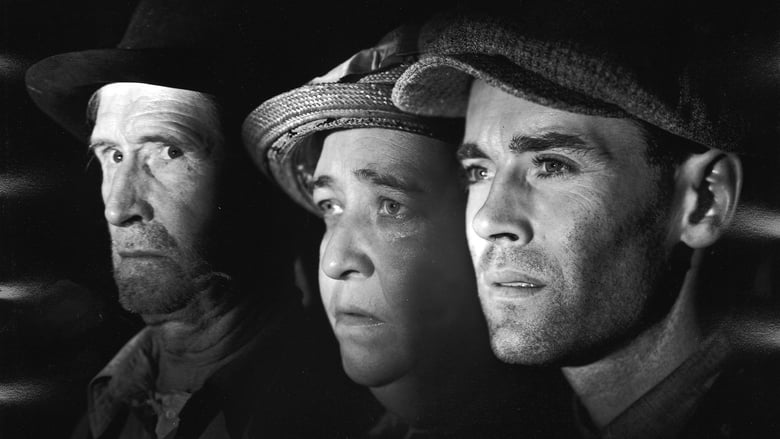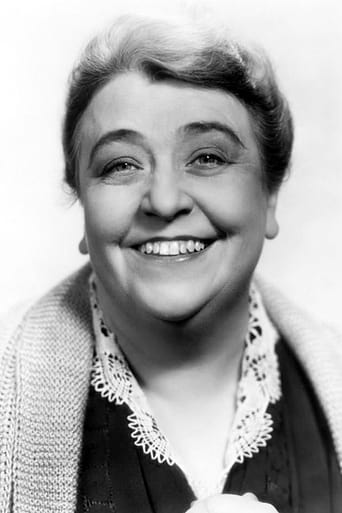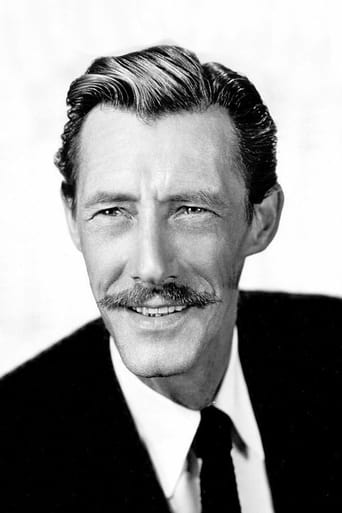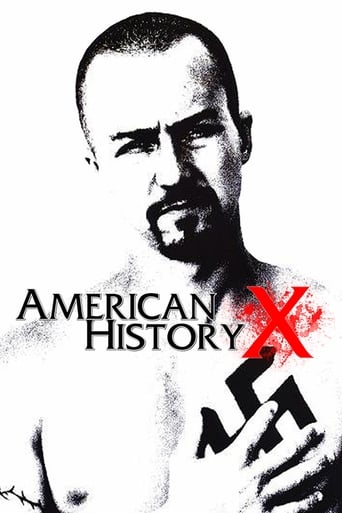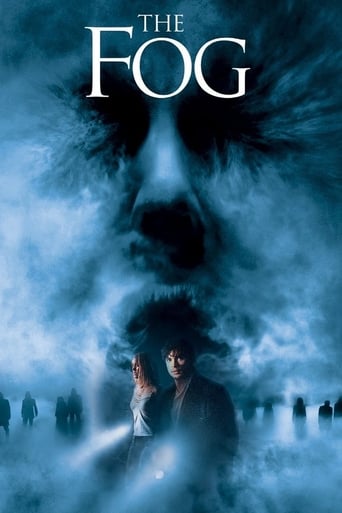The Grapes of Wrath (1940)
Tom Joad returns to his home after a jail sentence to find his family kicked out of their farm due to foreclosure. He catches up with them on his Uncle’s farm, and joins them the next day as they head for California and a new life... Hopefully.
Watch Trailer
Cast


Similar titles
Reviews
This one is in my celluloid firmament. I've been returning to it for over fifty years. I still think it is one of the most rewarding film experiences a person can have. With very little encouragement I could call it John Ford's best/greatest film/work of art. With a little bit more of very little encouragement I could call it the greatest american movie ever made. Exquisite moments and performances.
Copyright 24 January 1940 by 20th Century-Fox Film Corp. New York opening at the Rivoli: 24 January 1940. U.S. release: 15 March 1940. Australian release: 23 May 1940. U.S. copyright length: 11,586 feet. 128½ minutes. Australian release length: 12,011 feet. 133½ minutes.NOTES: Academy of Motion Picture Arts and Sciences Award, John Ford, Direct¬ing (defeating George Cukor's The Philadelphia Story, Alfred Hitchcock's Rebecca, Sam Wood's Kitty Foyle, and William Wyler's The Letter). Academy of Motion Picture Arts and Sciences' Annual Award for Supporting Actress: Jane Darwell (defeating Judith Anderson in Rebecca, Ruth Hussey in The Philadelphia Story, Barbara O'Neil in All This And Heaven Too, and Marjorie Rambeau in The Primrose Path). Also nominated for Best Picture (Rebecca), Actor, Henry Fonda (James Stewart in The Philadelphia Story), Screen¬play (The Philadelphia Story), Film Editing (North West Mounted Police), and Sound Recording (Strike Up the Band). Oddly, the film was not nominated for its superb Cinematography. Best Motion Picture of 1940 - New York Film Critics. Best Direction, John Ford (for this and The Long Voyage Home) - New York Film Critics. Best American film of 1940 - National Board of Review. Number two (to Rebecca) in The Film Daily annual poll of U.S. film critics. Fox's top money-maker of 1940. On a personal note, actress Dorris Bowdon wed Nunnally Johnson in February 1940. Negative cost: $850,000.COMMENT: So much has been written about The Grapes of Wrath and it has such a reputation as one of the greatest movies of all time, that it is in danger of being regarded by today's cinemagoers as a museum piece. This would be a tragedy. Although the political and economic events which shaped the book and the film have receded into history, the power of its story, the vividness with which its human tragedy is unfolded, and the collectively forceful eloquence of its players are undimmed.Ford and Darwell deserved their Academy of Motion Picture Arts and Sciences Awards. Fonda was cheated out of his. (I mean James Stewart's role in The Philadelphia Story is a supporting one, not a lead. Furthermore, Stewart plays the part with all his usual mannerisms - nothing special nor distinctive at all). I could go on for pages about the dramatic impact of The Grapes of Wrath - how it socked me right out of my seat the first time I saw it. And every time since. It's a masterpiece. Brilliantly directed, breathtakingly photographed, atmospherically set and scored, persuasively written and arrestingly played. Fonda regarded it as the high point of his career. So do I.
This remarkable movie is among the best ever done for emotional content and in spite of its old age, it confirms me 3 facts:1) I have always heard John ford about open fields, distant horizons and that's true here: the unlikely journey of the family offers us stunning visuals about the wild, dangerous and yet beautiful american landscape and yes, it's maybe even more gripping in black and white!2) This old movie is an eye opener about exploitation of men by men and it's much more essential than the today cries about skin, gender, sex or arms. The last prejudices are just like toys for babies, bones for dogs, something easy and inoffensive to focus the attention while the main, big attack is left untouched and unchallenged! In a way, those old american movies were thus more intelligent, assertive and free back then than today because i can't name a single recent movie about the poor, the exploited and the left-over of the American Dream while crisis and inequalities have never been so strong! 3) This old movie is like Missisipi Burning a precious proof for the case prosecuting America! So this country genocides natives, crushed workers rights, corrupts its politicians, makes war all over the globe, practiced slavery and segragation but ends up considered like the worldwide light of freedoom! Just unbelievable (and excellent propaganda)! Here the case is clear: money is the only value, reference to deal with people life, law is made for the rich and powerful and that's all! Thus destroying farms is lawful, mourning relatives and memories is a waste of time... In the same period, Soviets were into collective farming and they are the only bad guys! Honestly, in America, lands is owned by a few tycoons so i don't see a fundamental difference. In Germany, labor camps were built and those that we watched in sunny free California seems to be like them: workers behind barb wire, in barracks with the minimum of comfort and exploited to their death!And for sure, Ma Joad is an exceptional angel, a unforgettable ray of light in this world of terrible darkness: a must see if you have human feelings!
talking about the great depression of 30s, this film depicted the real acting,the real story of social stigma of that time.the natural, serene acting of the movie stars was not simply fantabulous, it was really indomitable.the dialogues near the ending of the movie between a mother and his son was so vivacious that it delineated a latent power of human being to overcome the arduous sufferings.


